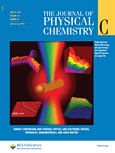
Journal of Physical Chemistry C
Scope & Guideline
Charting new territories in nanotechnology research.
Introduction
Aims and Scopes
- Nanomaterials and Nanotechnology:
The journal frequently publishes studies on the synthesis, characterization, and applications of nanomaterials, including their electronic, optical, and catalytic properties. - Catalysis and Energy Conversion:
A significant focus is placed on catalytic processes, including CO<sub>2</sub> reduction, hydrogen evolution, and various oxidation reactions, often employing novel materials and approaches. - Computational Chemistry and Theoretical Studies:
Many articles utilize computational methods, including density functional theory (DFT) and molecular dynamics simulations, to elucidate mechanisms and predict properties of materials. - Interfaces and Surface Chemistry:
Research on the interactions at interfaces, including solid-liquid and solid-gas interfaces, is a core area, particularly in relation to electrocatalysis and photocatalysis. - Energy Storage and Conversion:
The journal covers advancements in materials for batteries, supercapacitors, and fuel cells, highlighting innovative strategies for improving performance and sustainability.
Trending and Emerging
- Machine Learning and Data-Driven Approaches:
There is a rising trend in the application of machine learning techniques for materials discovery, optimization, and characterization, indicating a shift towards computationally intensive methodologies. - Sustainable and Green Chemistry:
Research focusing on sustainable practices, including CO<sub>2</sub> utilization, energy-efficient processes, and environmentally friendly materials, is gaining prominence, aligning with global sustainability goals. - Two-Dimensional Materials:
The exploration of two-dimensional materials, particularly in the context of electronics, catalysis, and energy storage, is rapidly emerging as a significant area of interest. - Photocatalysis and Solar Energy Conversion:
The journal is increasingly featuring studies related to photocatalytic processes and solar energy conversion technologies, reflecting a growing interest in renewable energy solutions. - Advanced Characterization Techniques:
There is a trend towards utilizing sophisticated characterization techniques, such as in situ spectroscopy and advanced microscopy methods, to gain deeper insights into material properties and behaviors.
Declining or Waning
- Traditional Organic Chemistry:
There has been a noticeable decrease in publications focused solely on traditional organic chemistry methodologies, as the journal shifts towards more interdisciplinary and applied research in nanomaterials and catalysis. - Basic Theoretical Studies:
Papers concentrating on foundational theoretical studies without direct applications to materials science or energy technologies appear to be less frequent, reflecting the journal's trend towards practical and impactful research. - Classical Spectroscopy Techniques:
While spectroscopy remains important, there has been a decline in studies that employ classical techniques in isolation, as researchers increasingly integrate advanced techniques with computational methods.
Similar Journals
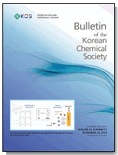
BULLETIN OF THE KOREAN CHEMICAL SOCIETY
Fostering excellence in diverse chemical research.BULLETIN OF THE KOREAN CHEMICAL SOCIETY, published by WILEY-V C H VERLAG GMBH, is a prominent journal in the field of chemistry, with a specific emphasis on miscellaneous chemical research. With an ISSN of 0253-2964 and E-ISSN 1229-5949, this journal serves as a pivotal platform for researchers, professionals, and students who are eager to showcase innovative studies that address both foundational and emerging topics in the discipline. Boasting a commendable Q2 ranking in the 2023 chemistry quartiles, the journal ranks within the top 50th percentile in Scopus, reflecting its commitment to high-quality scientific discourse. The content published within its pages from 1996 to 2024 covers a vast array of subjects, ensuring a multidisciplinary approach to chemical research. The journal’s impact in the academic community is underscored by its accessibility to a global audience, making it an essential resource for those wishing to stay at the forefront of chemical advancements.
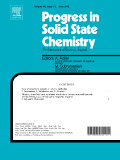
PROGRESS IN SOLID STATE CHEMISTRY
Advancing the Frontiers of Solid State ChemistryPROGRESS IN SOLID STATE CHEMISTRY, published by PERGAMON-ELSEVIER SCIENCE LTD, serves as a pivotal platform for disseminating cutting-edge research and advancements in the field of solid state chemistry. With an impressive impact factor and a respected status, this journal consistently ranks in the Q1 category across multiple disciplines, including Condensed Matter Physics, Materials Science, and Physical and Theoretical Chemistry. Following a rigorous peer-review process, it features articles that explore theoretical frameworks and experimental findings, thereby fostering innovation and collaboration among researchers and professionals. Although it does not adopt an open access model, its substantial reach and high Scopus rankings—19th in Condensed Matter Physics, 14th in Physical and Theoretical Chemistry, and 48th in General Materials Science—underscore its influence in shaping the future of materials research. Established in 1964, the journal continues to contribute significantly to the academic community, bridging the gap between theory and practical application in solid state materials.

Inorganics
Connecting Scholars through Inorganic InsightsInorganics is a vibrant, peer-reviewed Open Access journal dedicated to advancing the field of inorganic chemistry, published by MDPI since 2013. Based in Switzerland, this journal aims to provide a dynamic platform for researchers, professionals, and students to share groundbreaking findings, fostering collaboration and innovation within the global scientific community. With an impressive Q2 ranking in the category of Inorganic Chemistry as of 2023, Inorganics stands out as a significant conduit for high-quality research that spans a wide range of topics from coordination compounds to metal-organic frameworks. Its commitment to accessibility ensures that cutting-edge research can be accessed, utilized, and built upon by a diverse audience, thereby amplifying its impact. Join the conversation in Inorganics and contribute to the ever-evolving landscape of inorganic chemical research.

RUSSIAN JOURNAL OF APPLIED CHEMISTRY
Innovative Insights for Chemical Engineering ExcellenceRUSSIAN JOURNAL OF APPLIED CHEMISTRY, published by PLEIADES PUBLISHING INC, serves as a pivotal platform for advancing knowledge in the fields of chemical engineering and general chemistry. With an ISSN of 1070-4272 and an E-ISSN of 1608-3296, this journal has been in continuous publication since 1995 and is set to continue until 2024. Although it operates without an open access model, researchers can access a wealth of innovative research findings, critical reviews, and insightful discussions that reflect the current trends and challenges in applied chemistry. Its rankings place it in Q3 quartiles for both Chemical Engineering and Chemistry as of 2023, indicating its emerging influence within these disciplines. The Scopus rankings further highlight its relevance, positioning it in the lower percentiles, suggesting a fertile ground for researchers aiming to elevate the field. Engaging with this journal can enrich academic and professional understanding, making it an essential resource for anyone dedicated to furthering their expertise in applied chemistry.

Journal of the Mexican Chemical Society
Fostering Excellence in Chemical Education and PracticeWelcome to the Journal of the Mexican Chemical Society, an essential publication for researchers and professionals in the field of chemistry. Published by the reputable SOC QUIMICA MEXICO, this journal has been a vital platform for sharing innovative research and developments in the field since its inception in 2008. With an ISSN of 1870-249X and an E-ISSN of 1665-9686, the journal provides valuable insights and contributes to the global scientific community. As of 2023, it holds a Q3 quartile ranking in miscellaneous chemistry categories and ranks #258 out of 408 in General Chemistry on Scopus, placing it at the 36th percentile among its peers. Although currently not an open access journal, it remains committed to disseminating high-quality research that supports advancements in chemical education, practice, and technology. Researchers, academics, and students are encouraged to engage with this journal to explore groundbreaking studies and enhance their understanding of diverse chemical disciplines.
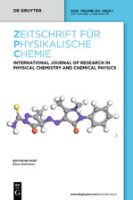
ZEITSCHRIFT FUR PHYSIKALISCHE CHEMIE-INTERNATIONAL JOURNAL OF RESEARCH IN PHYSICAL CHEMISTRY & CHEMICAL PHYSICS
Leading the Way in Chemical Research and DiscoveryZEITSCHRIFT FUR PHYSIKALISCHE CHEMIE-INTERNATIONAL JOURNAL OF RESEARCH IN PHYSICAL CHEMISTRY & CHEMICAL PHYSICS, published by WALTER DE GRUYTER GMBH, is a highly regarded platform for researchers in the field of physical chemistry and chemical physics. With an ISSN of 0942-9352 and an E-ISSN of 2196-7156, this journal serves as a vital resource for the dissemination of original research, critical reviews, and insightful discussions that span theoretical and experimental investigations. Recognized for its quality, it holds a Q2 classification within the 2023 quartiles of Physical and Theoretical Chemistry and ranks 72nd out of 189 in the Scopus database, placing it in the 62nd percentile. The journal’s extensive publication history, originating from 1943, showcases its long-standing commitment to advancing the understanding of complex chemical phenomena. Although it currently does not offer open-access options, it continues to attract contributions from leading experts worldwide, making it essential reading for professionals, researchers, and students dedicated to pushing the frontiers of chemical science. The journal is located in Berlin, Germany, at Genthiner Strasse 13, D-10785 Berlin, Germany.
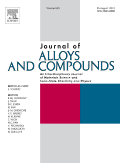
Journal of Alloys and Compounds
Advancing the Frontier of Materials ResearchJournal of Alloys and Compounds, published by Elsevier Science SA, stands at the forefront of materials research, focusing on the properties, applications, and innovations within alloys and compounds. With an impressive impact factor and prestigious rankings placing it in the Q1 quartile across multiple related categories—including Materials Chemistry, Mechanical Engineering, and Mechanics of Materials—this journal is recognized for its significant contributions to the field. Researchers and professionals engaged in metallurgy, materials science, and engineering will find it a critical resource that encompasses groundbreaking studies, insightful reviews, and essential findings. The journal has a strong influence, as evidenced by its Scopus rankings—ranking 14th in Metals and Alloys and 28th in Mechanics of Materials, indicating a robust global impact. As it continues to publish cutting-edge research from 1991 to 2024, the Journal of Alloys and Compounds serves as a vital platform for the exchange of knowledge, thereby advancing our understanding of complex materials and fostering innovation in diverse applications.
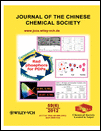
JOURNAL OF THE CHINESE CHEMICAL SOCIETY
Bridging Theory and Practice in Chemical SciencesJOURNAL OF THE CHINESE CHEMICAL SOCIETY, published by WILEY-V C H VERLAG GMBH, is a vital resource in the field of chemistry, focusing on a broad array of topics pertinent to general chemistry and its advancing sub-disciplines. Established in 1954 and running through 2024, this journal serves as a significant platform for the dissemination of high-quality research, showcasing innovative findings and developments within the chemical sciences. With its Q3 category ranking and positioning at Rank #203 in General Chemistry per Scopus, it reflects the journal's commitment to research excellence and impact. While not an open-access publication, it ensures accessibility to a global audience, making it an essential tool for researchers, professionals, and students alike seeking to stay informed and engaged in the evolving landscape of chemistry.
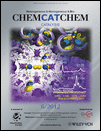
ChemCatChem
Catalyzing Knowledge in the Heart of Chemical Science.ChemCatChem is a leading international journal published by WILEY-V C H VERLAG GMBH that has been making significant contributions to the fields of catalysis, inorganic and organic chemistry, as well as physical and theoretical chemistry since its inception in 2009. With an established reputation for excellence, this journal holds commendable rankings in various categories, including Q1 in Inorganic Chemistry and Q1 in Organic Chemistry, demonstrating its pivotal role in advancing scientific knowledge and innovation. Notably, it has achieved a high Scopus ranking, securing 10th place out of 79 in Inorganic Chemistry, among others, showcasing its influence and quality. Although open access options are not available, the journal offers cutting-edge research articles, reviews, and insights that are vital for researchers, professionals, and students aiming to stay at the forefront of chemical science. With its address rooted in Weinheim, Germany, and convergence projected to continue until 2024, ChemCatChem remains a dynamic platform for disseminating vital advancements within the chemical community.

Journal of Inorganic and Organometallic Polymers and Materials
Elevating Knowledge in Advanced Polymer MaterialsThe Journal of Inorganic and Organometallic Polymers and Materials, published by SPRINGER, is a premier academic journal dedicated to advancing the field of materials science, particularly in the domains of inorganic and organometallic polymers. Established in 1996, this journal has successfully converged multiple years of research, reflecting the dynamic evolution of the field through to 2024. With an impressive Scopus Rank placing it in the top 81st percentile in both Materials Chemistry and Polymers and Plastics, it is recognized for its significant contributions and innovations. The journal is classified in the prestigious Q2 Category, indicating its influence and relevance among leading publications. While it operates under a subscription model, the journal is committed to disseminating cutting-edge research, providing insights that empower researchers, professionals, and students to push the boundaries of materials chemistry and polymer science. Its focus on high-quality, peer-reviewed articles ensures that readers are equipped with the latest findings and methodologies that drive this exciting and rapidly evolving field.